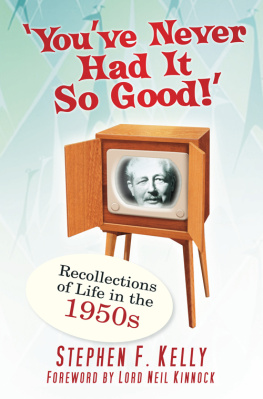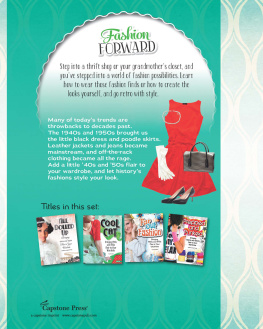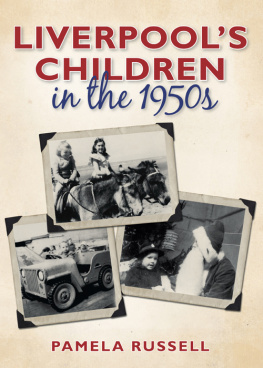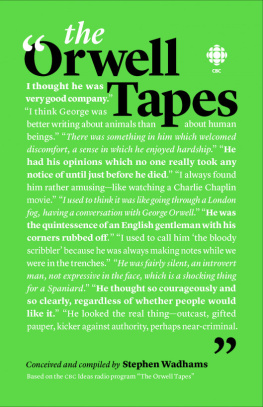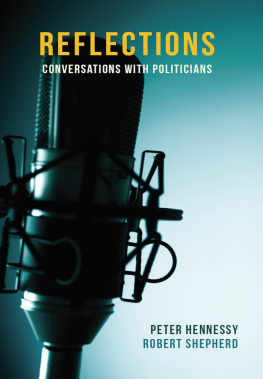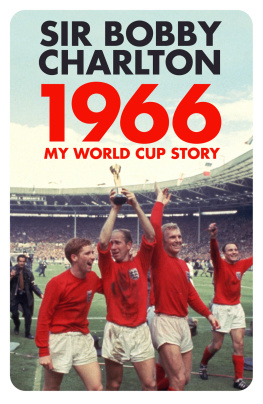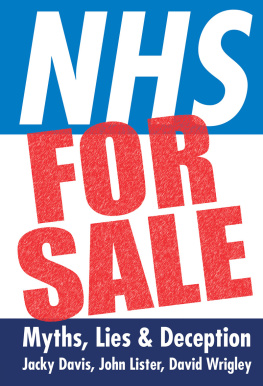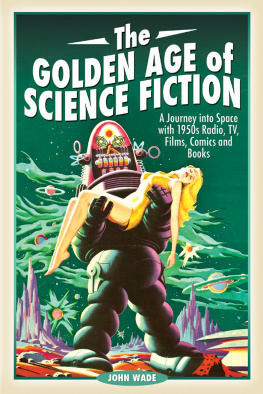
There are many people to whom I owe a great debt. First, and principally, all those who gave their time and welcomed me into their homes to talk about the 1950s. These were largely happy recollections, although, for some, memories of being caned or national disasters such as the Munich air crash have left emotional scars. Inevitably, many of those I have interviewed were elderly, so their generosity is even more to be appreciated. Sadly, a number of them have died since being interviewed, and, to their families, I would like to place on record my sincere gratitude and hope that the memories of their loved ones in this book will help ease the burden of their grief.
I would also like to thank a number of people who helped to organise interviews and offered their thoughts and advice. These include Chorlton Good Neighbours, who kindly allowed me to invade their regular Thursday morning coffee and craft meetings in pursuit of willing interviewees. I would like to pay tribute to them and all the volunteers who do such magnificent work in the community. Others who have kindly helped me out include Clare Jenkins, Janice Finch, Graham Hobbs of Manchester YMCA, and the Oral History Society. I am also grateful to Nafhesa Ali, for allowing me to use a number of interviews she had carried out for the Asian Voices project, on which we both worked at the University of Huddersfield, and also to Dr Rob Light, for some interviews from the Up and Under project.
My thanks also to all the people who have allowed me to use photographs in their possession or copyright, including Clare Jenkins and Mary Kelly. I would also like to thank John Shepherd for his photographs of the Liverpool docks and in particular the Empress of Canada , all of which are from the Captain H.J. Chubb collection; and Steve Hale, for his 1950s photographs of Liverpool. My gratitude also to Reflections of Hastings, who have supplied a number of pictures. While I have endeavoured to trace the copyright on all photographs used in this book, there are some which have proved difficult to identify. If the owners or copyright holders get in touch with the publisher then we shall endeavour to correct this error.
I would also like to thank Neil Kinnock, a friend of almost forty years, for agreeing to write the foreword to the book as well as spending a delightful morning with me in Liverpool reminiscing on his childhood.
For background work on the book I have relied heavily on two highly respected texts David Kynastons Family Britain 1951-1957 and Peter Hennessys Having It So Good: Britain in the Fifties , both of which I would highly recommend to anyone interested in this period. I would also like to thank Peter Hennessy, another friend of many years, for his interview. Needless to say, however, any mistakes in this book are mine and mine alone.
On a technical note, all the interviews were recorded on a digital recorder and these interviews have now been donated to the National Library. I have tried to transcribe them as people spoke, but inevitably I have had to make changes to make their thoughts more clear and comprehensible. Oral historians will understand the difficulties here, but I hope that my interpretations are as accurate as possible. I would also like to thank Matilda Richards and all the staff at The History Press for encouraging this project.
Finally, I would especially like to thank my wife, Judith Jones, for her unstinting support over the years, and to my children, Nicholas and Emma, both of whom have treated me with a neat combination of humour, ridicule and affection while helping to resolve my many computer problems. I am, after all, a child of the fifties myself!
Stephen F. Kelly
Manchester, 2012
CONTENTS
by Neil Kinnock
BY NEIL KINNOCK
As the testimonies collected in this very fine personalised portrayal by Stephen Kelly show, the 1950s was a fulcrum decade. In those ten years, British society and economy and politics were levered from an era led by people and conventions that came from the nineteenth century, into a time in which the mass of the population was conscious of a fast changing present and focused, as never before, on the future.
Two world wars and the deep, scarring slumps between them threw shadows over the early years of the decade. But by the time the 1960s came, Britain had moved into the light. The predominant reason for that was that working-class people and communities had their first ever peacetime experience of full employment. That, coupled with the effects of the 1944 Education Act and the Welfare State, established by the post-war Labour government, ensured security, opportunity and care with a breadth and depth previously unknown. It all consequently gave tangible meaning to the liberty for which the British and their allies had fought but few had really hoped to see so quickly or so abundantly. It didnt produce perfection but it did mean progress on an unprecedented scale.
Such a seismic shift in fortunes and conditions produced radical changes in every facet of life. Dependable work brought continuous pay. For the first time, progressive Pay As You Earn taxation and National Insurance funded greatly expanded universally provided public services, reduced income disparities between classes, and financed pensions and sickness benefits. Monthly salaries replaced weekly wages for public and private sector supervisors and professionals. Trade unions recruited millions more members and framed national standards that were then improved by workplace negotiators.
The mass consumption generated by plentiful jobs fostered new appetites. Style and fashion came within reach of the majority. For many, choice became a reality for the first time.
Advances in science and technology some spurred by wartime necessity and investment accelerated the shifts in treatment, taste, development and demand.
In the mid-1950s the vaccines against polio and TB added hugely to the prevention and cure of major killer and disabling diseases. Penicillin derivatives also combated infections, the structure of DNA was discovered, cancer was scientifically linked to smoking, transplant surgery began, most children were born in hospital, contraception came into use, family sizes fell rapidly and made a further contribution to reducing poverty.
Wartime petrol rationing ended in 1950 and, throughout the decade, huge British plants poured out increasingly affordable family cars, bought through Hire Purchase and polished proudly on Sunday morning streets. The first motorways speeded journeys, long distance coaches traversed the land, jet airliners crossed the Atlantic and connected the UK with increasing numbers of capitals in other European countries. The Hovercraft, the transverse engine Mini, and roll-on roll-off vehicle ferries were invented. Britain got its first mainline electric trains. The first business computer, increasing calculation speeds a thousand fold, was introduced (on hire only) by IBM in 1954 and, five years later, Barclays Bank became the first in Britain to computerise accounts.
With full employment firmly established, something called leisure became familiar, pastimes became hobbies, Do-It-Yourself became less of a necessity and more of a diversion. Entertainment was revolutionised, especially with the wildfire spread of television. Over the 1950s Music Hall comedians and novelty acts which had made the transition to radio in the 1940s, gave way to slick and witty duos and spectacular variety shows on the black and white screen in the living room. Live sports coverage flooded into homes and began to turn the cigarette card heroes of football, cricket, horseracing, boxing, motorcar, cycle racing, lawn tennis and (still amateur) track athletics into superstars. Filmed news broadcasts, documentaries and current affairs programmes with mass audiences provided dramatic insights, analysis and opinion. Commercial television arrived halfway through the decade and quickly magnetised millions.
Next page
